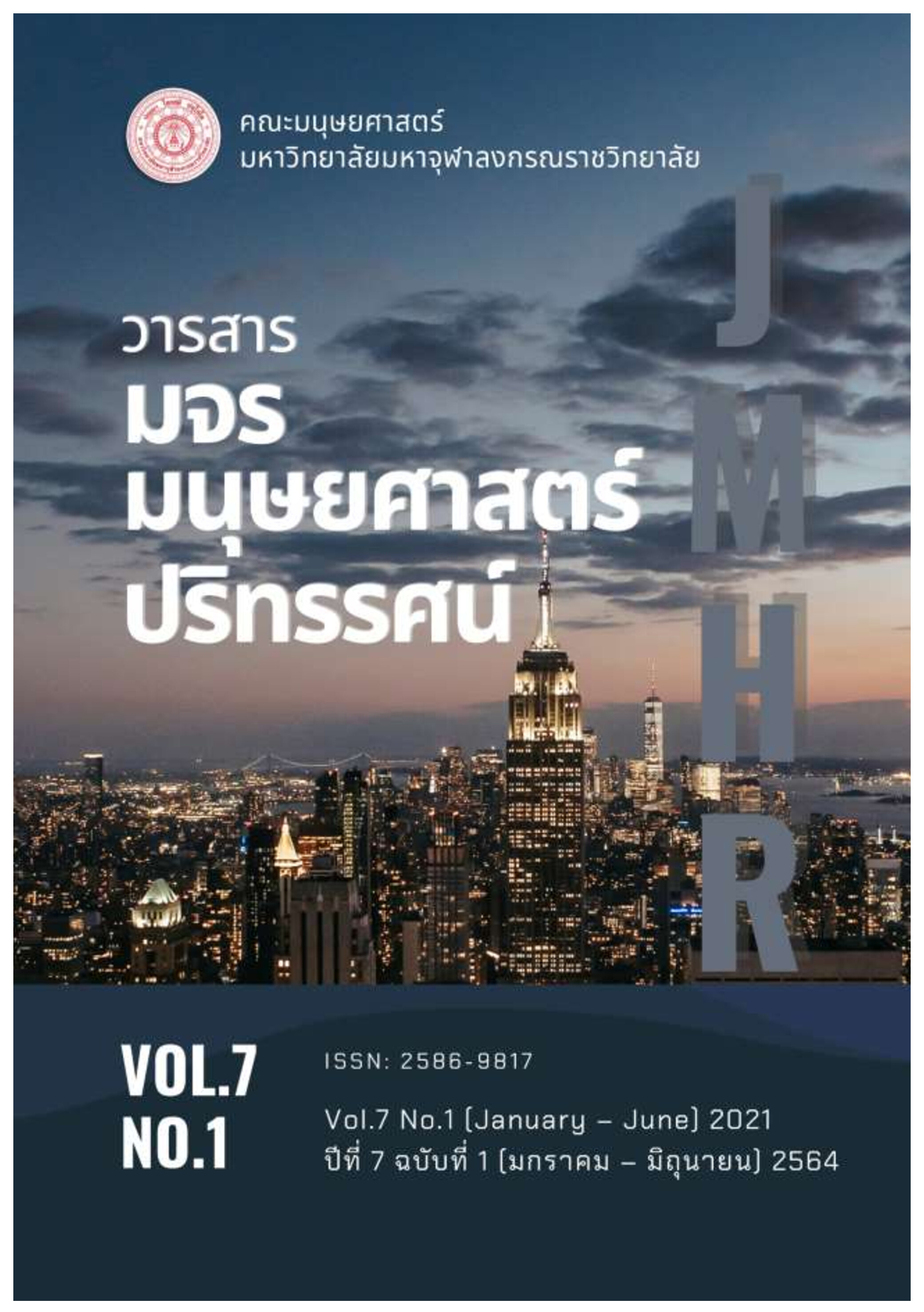Translation Strategies from English Language to Thai Language in the Novel ‘The Wizard of Oz’
คำสำคัญ:
การแปล, กลวิธีการแปล, การแปลนิยายบทคัดย่อ
The objectives of this study were to analyze the translation strategies from English Language to Thai Language in Novel ‘The Wizard of Oz’ by using Baker's taxonomy as a framework to categorize and divide the translations into eight strategies.
Findings showed that seven of eight Baker’s translation strategies were founded in the novel which were translation by cultural substitution, translation by a more general word, translation by a more neutral/less expressive word, translation using a loan word or loan word plus explanation, translation by omission using related word, translation by paraphrase using related word, and translation by paraphrase using unrelated words. The frequency of translation strategies used showed that translation by cultural substitution (57.07%) was mostly found in translation from English language to Thai language in the novel The Wizard of Oz’.
เอกสารอ้างอิง
Amos, W. (2020). Translation strategies in Trainning Toer’s Bumi Manusia. International Journal of Linguistic, Literature and Translation (IJLLT). 3(7). Retrieved June 15, 2021, from https://al-kindipublisher.com/index.php/ijllt/article/view/1028
Angelina, Riadi, and Thennoza. (2020). An Analysis of Translation Strategies Toward Cultural Terms in ‘And Then There Were None’ Novel. English Language Studies and Applied Linguistics Journal (ELSA). 1(1). Retrieved June 15, 2021, from http://jurnal.polteq.ac.id/index.php/elsa/article/view/64
Eugene, N. and Russell, T. (1969). The theory and practice of translation. Leiden: Brill.
Khongbumpen, C. (2008). Strategies employed in translation from Thai into English: a cause study of an article in focus Bangkok. (M.A.). Srinakharinwirot University. Bangkok.
Krai-on, S. (2013). Strategies for translating Thai cultural words into English in the novel Four Reigns. (M.A.). Silpakorn University. Bangkok.
Mona, B. (2011). In Other Words. Routledge Taylor and Fransis Group: London and New York.
Mungchomalang, O. (2009). Strategies used in Translating Abstract of Thesis and Master’s Projects. (M.A.). Srinakharinwirot University. Bangkok.
Newmark, P. (1981). Approaches to translation. Tehran: Rahnama.
Nilaphan, N. (2018). Analysis of Translation techniques of English song in animation movie “Little Mermaid”:Poor Unfortunate Souls. Bangkokthonburi University. Bangkok.
Pokasumrit, P. (2012). Cultural substitution in English to Thai translation. National Institute of Development Administration. Bangkok.
Roekmongkhonwit, C. (2006). A Study of Translation Strategies Employed in Jatujak Market Guidebook. (M.A.) Srinakharinwirot University. Bangkok.
Saibua, S. (1999). Translation principles. 7th Publishing. Bangkok: Thammasat University. Bangkok.
Saputriyan, L. (2018). Translation strategy found in Novel ‘The Fault in Our Stars’ by Inggrid Dwijani Nimpoeno. (B.A.). Muhammadiyah University of Surakarta. Indonisia.
Stuart, C. (1998). Translation into second language. New York: Longman.
Treetrapetch, Tipayasuparat, and Webb. (2017). An Analysis of Verbal Humor and Translation Techniques used in The American Comedy Film “TED”. (M.A.). Rangsit University. Pathum Thani.
Warachananan, P. (2015). A Study of Translation Strategies in the Translation of Songs in Walt Disney’s Animated Feature Films into Thai Versions. (M.A.). Naresuan University. Phitsanulok.
Widiyanto. (2014). Translation Strategies of Non-equivalence at Word Level in Morris and Hartog Van Banda Comic Lucky Like Ghost Hunt. (B.A.) Dian Nuswantoro University. Indonisia.






